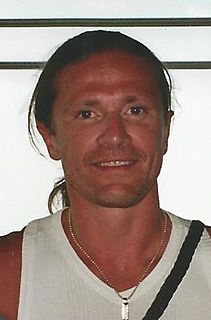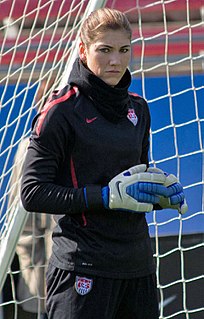A Quote by Asha Rangappa
Facebook is primarily a mechanism for bonding, not bridging. Studies show that in the vast majority of cases, people live in self-made echo chambers on Facebook that reinforce their existing views of the world.
Related Quotes
I haven't sworn off Facebook. I'm on Facebook. There's a fan page on Facebook that I will update, but I'm on there myself under a pseudonym, because there were a lot of people able to private-message me on Facebook, and it was getting really weird. And then with MySpace, I just don't read messages. I delete everything, and I just post updates every now and then.
In today's social business marketplace Facebook is one of the best places for nonprofits to be discovered and connect with a larger audience on the basis of shared values. So to get started, a non-profit should launch a Facebook page and invite your existing real world community to connect your cause and their networks.

































